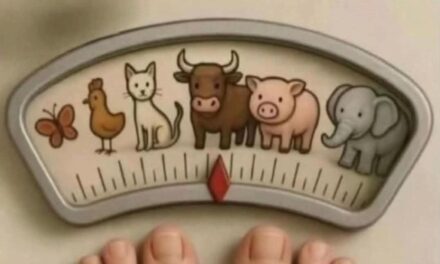Why Blind Weighing and Meal Prep Can Support Eating Disorder Recovery
For many people in recovery from an eating disorder, one of the biggest battles isn’t just with food, it’s with numbers. The number on the scale. The calories on the packet. The steps walked that day. The constant calculations.
This obsession with numbers isn’t about vanity. It’s the brain trying to find certainty and control in a world that once felt unsafe.
Understanding Protective Responses
When the body has been through trauma, like emotional abuse, bullying, or unstable relationships, the nervous system adapts. You may have heard of “fight, flight or freeze”, but there’s another lesser-known trauma response: fawn.
Fawning is when the brain says:
“I’ll stay safe by pleasing others, saying yes, staying quiet, or shutting down.”
It can look like:
-
Going blank when asked a question
-
Saying “I don’t know” because your mind fogs over
-
Smiling or agreeing to things even when they don’t feel right
-
Struggling to speak up, eat in front of others, or express needs
This response isn’t a flaw. It’s a clever survival strategy from a brain that’s been hurt and is still trying to keep you safe.
Blind weighing in eating disorder recovery is one of the most supportive tools we use in trauma-informed therapy
When recovery is measured by numbers, your brain locks into a reward loop:
“I only did well if the number was low.”
“If I gained weight, I’ve failed.”
“If I can just control the calories, I’ll feel better.”
But here’s what neuroscience tells us ➔ the more we attach safety to numbers, the harder it is for the brain to learn real emotional safety. That means recovery stays fragile. You may stay physically alive, but mentally trapped.
Introducing Blind Weighing
Blind Weighing – A Gentle Step Forward
This is where blind weighing can be a powerful shift.
It means your weight is monitored medically (if needed), but you don’t see the number.
This helps:
-
Reduce obsession and anxiety around weight
-
Focus on behaviours, not the scale
-
Reconnect to how your body feels rather than what it weighs
-
Support long-term, sustainable recovery
It’s not about taking power away, it’s about giving your brain space to heal.
Meal Prep as Support
Meal Prep – Not Control, But Support
For some, meal prep can feel like giving up flexibility. But when used gently and supportively, it can become your safety net.
Benefits of supportive meal prep:
-
Reduces last-minute anxiety around food
-
Provides structure and predictability (which the trauma brain craves)
-
Frees up mental energy for life, not just food
-
Helps you practice regular eating without needing perfection
When meals are planned ahead (including enough energy, carbs, fats, and proteins), it removes the temptation to “negotiate” with the Eating Disorder voice in the moment.
Structure isn’t about rules. It’s about restoring trust.
Take the First Step Towards Healing
Begin your journey to recovery with compassionate support and expert guidance.
Final Thoughts on Recovery
Building Trust with Your Body and Life
If you freeze when people ask how you’re doing…
If you struggle to answer simple questions about food…
If numbers rule your sense of worth…
Know this ➔ you are not broken. You’re wired for protection. And that wiring can change.
Recovery isn’t about being perfect. It’s about building trust with your body and your mind, step by step, meal by meal, day by day.
Empowering Affirmations for Recovery
I am worthy of love and healing.
My journey is unique, and I honor it.
I trust my body to guide me.
Every step forward is progress.
I am more than my struggles.
My voice deserves to be heard.
I embrace my imperfections with kindness.
I choose to nourish my body and soul.
I am resilient and capable.
I release the need for perfection.
I am learning to love myself as I am.
I am not alone in my journey.
I celebrate my victories, big and small.
I am deserving of peace and happiness.
I am enough, just as I am.
I am building a life I love.
I am grateful for my growth.
I am healing at my own pace.
Becky Stone
Becky Stone is a compassionate therapist and certified eating disorder counsellor based in the UK. With a unique blend of professional expertise and personal experience, she is dedicated to helping both adults and teenagers navigate the complexities of eating disorder recovery. Her approach is rooted in empathy, focusing on rebuilding trust with oneself and fostering a non-judgmental environment. Becky is particularly passionate about supporting neurodivergent individuals and offers innovative tools like the Recovery Record app to aid in their journey. Her practice, Counsellor Who Cares, is a sanctuary of safety and understanding, where clients are empowered to heal at their own pace.
“Healing is a journey, not a destination.”
Join Our Supportive Community
Want more like this? If you found this blog helpful, I share honest, trauma-informed insights every single week on recovery, self-worth, and what it means to feel good in your skin. No spam. Just words that lift you.






